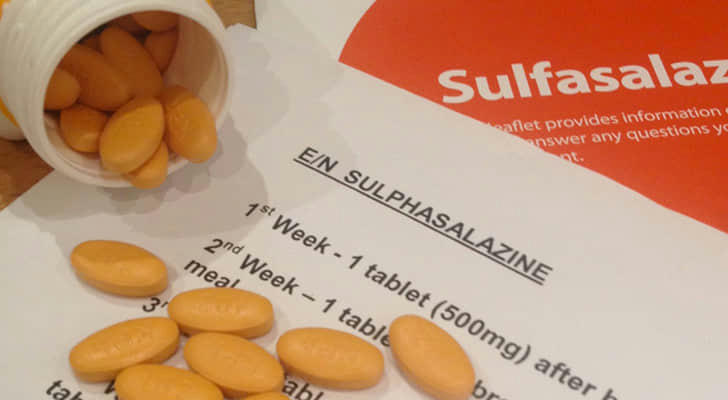Find Your Best Treatments for Crohn's Disease
If you've got Crohn's disease, finding the right meds can make a huge difference in managing your condition. The goal is to get your symptoms under control and, ideally, put the disease into remission, which means you won't have any symptoms for a while. Figuring out which medications work best for you might take some trial and error, so don't be surprised if your doctor tries a few options before finding the perfect fit.

Types of Medications for Crohn's Disease
When it comes to treating Crohn's, doctors usually focus on reducing inflammation in your gut and easing your symptoms. They might also prescribe meds to prevent symptoms from popping back up. Here's a rundown of the different types of medications you might encounter:
Steroids (Corticosteroids)
Steroids are like the heavy-duty tools for fighting inflammation. They're typically used for a few months to manage flare-ups and help put your Crohn's into remission. Here's how they work:
•Oral Steroids: These are taken by mouth and include:
•Budesonide (Entocort): Targets inflammation in your intestines.
•Hydrocortisone (Aquacort, Cortenema, Hydrocort): Can be taken orally or rectally.
•Methylprednisolone (Duralone, Medrol, M-Prednisol): Helps manage severe inflammation.
•Prednisolone (Omnipred, Orapred, Veripred): Commonly used to manage symptoms.
•Prednisone (Deltasone, Rayos): Often prescribed for flare-ups.
•Injectable Steroids: Administered via injection, these are usually used in more severe cases or the hospital:
•Hydrocortisone (A-Hydrocort, Solu-Cortef): Used for acute situations.
•Methylprednisolone (A-Methapred, Depo-Medrol, Solu-Medrol): Provides a more potent effect.
It's important to let all your healthcare providers know you're on steroids. Don't stop taking them suddenly without your doctor's advice, as it can cause serious drops in blood pressure and blood sugar levels.
Anti-Inflammatory Drugs (Aminosalicylates)
These meds are designed to calm down inflammation in your intestines and can be effective for mild to moderate Crohn's. They might also help keep symptoms at bay. Here are a few you might come across:
•Examples of Aminosalicylates (5-ASAs) include:
•Balsalazide (Colazal, Giazo): Helps manage symptoms and maintain remission.
•Mesalamine (Apriso, Delzicol, Lialda, Pentasa): Comes in different forms for various parts of the intestines.
•Olsalazine (Dipentum): Reduces inflammation in the colon.
•Sulfasalazine (Azulfidine): Used for both Crohn's and ulcerative colitis, but it might affect folate absorption.
Side effects can include nausea, diarrhea, headaches, and fever. If you're pregnant, especially, you might need extra folic acid because of sulfasalazine's effects.
These drugs work by dampening your immune system's activity to reduce inflammation. They're usually used when other treatments aren't doing the trick.

•Common Immunosuppressants include:
•Azathioprine (Azasan, Imuran): Helps manage immune responses.
•Cyclosporine (Gengraf, Neoral, Sandimmune): For more severe cases.
•Mercaptopurine (Purinethol, Purixan): Similar to azathioprine.
•Azathioprine (Azasan, Imuran): Helps manage immune responses.
•Mycophenolate mofetil(CellCept): Often used for tough cases.
•Tacrolimus(Astagraf XL, Envarsus XR, Prograf): For challenging situations.
These drugs can increase your risk of infections and certain cancers, like lymphoma. Common side effects include headaches, diarrhea, and stomach pain.
Antibacterial Drugs
Antibiotics are used to treat infections that might pop up in your digestive tract, such as abscesses and fistulas.
•Antibiotics for Crohn's include:
•Ciprofloxacin (Cipro, Proquin): Used for gut infections.
•Metronidazole (MetroCream, Metrogel, Nuvessa): Can cause tingling in your extremities with long-term use.
•Rifaximin (Xifaxan): Treats gut infections.
•Vancomycin (Vancocin): For severe infections.
•Watch out for potentially serious side effects like rashes, hives, or swelling, and be mindful of the sun if you're taking ciprofloxacin.
Biologics
Biologics are advanced medications made from living cells that help manage an overactive immune system. They're often used for moderate to severe Crohn's disease, especially if other treatments haven't worked.
•Types of Biologics include:
•TNF Inhibitors(Anti-TNF): These target inflammation-causing proteins and are given via IV or injection. Examples include:
•Adalimumab (Humira): A popular choice.
•Infliximab (Remicade): Effective for severe symptoms.
Side effects can include allergic reactions, drowsiness, and rarely, liver issues or serious infections like hepatitis B and tuberculosis.
Combination Therapies
Sometimes, doctors might combine different types of medications, like biologics and immunosuppressants, for a more aggressive approach. This can be effective but might also increase the risk of side effects, such as infections and, rarely, serious cancers.
Types of Biologics include:
Some over-the-counter meds might help with certain symptoms, though you should check with your doctor before using them:
•Anti-Diarrheal Medications: Loperamide (Diamode, Imodium A-D) can help control diarrhea.
•Pain Relievers: Acetaminophen can ease pain. It’s best to avoid NSAIDs (like aspirin, ibuprofen, and naproxen) because they can raise the risk of ulcers and bleeding.
Supplements
Crohn's disease can lead to deficiencies in some key nutrients. Supplements might be necessary for:
•Iron
•Vitamin D
•Vitamin B12
•Folate
Always talk to your doctor before starting any new supplements, especially if you're pregnant or dealing with other health issues.

Conclusion
Managing Crohn's disease with medication involves a bit of a journey to find what works best for you. It often requires some trial and error to figure out the right mix of treatments to keep your symptoms in check and help you feel your best. Keeping an open dialogue with your healthcare provider is essential in finding the right approach for your specific needs.
